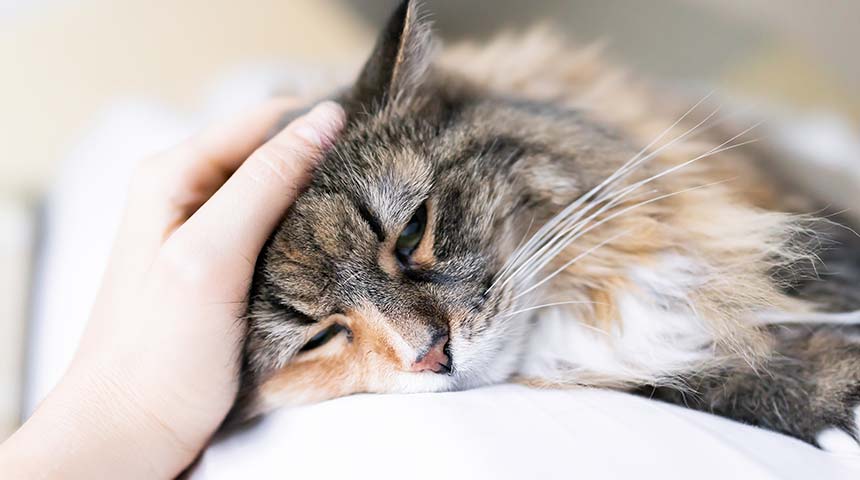
Some pets have the bad habit of swallowing everything they come across! Dogs seem to be more affected because of their less discriminatory eating habits. However, cats too can be attracted by certain threads or objects. Beware of puppies that nibble and may swallow almost anything!
To give you an idea, here is a non-comprehensive list of foreign objects that can cause intestinal obstruction: toys, balls, bottle caps, coins, buttons, bones, rocks, corn cobs, clothing, fabric, nylon stockings, plastic bags, plastic wrap, tampons, Christmas icicles, wool, needles with thread, fishing line, carpet, rubber bands, razors, pieces of plastic, cell phones, fruit pits, nails, hooks, etc.
Foreign objects can remain in the stomach or lodge in any portion of the intestine. Most often, this condition requires surgery as quickly as possible. in some cases, if the foreign object is found in the stomach, a gastroscopy (stomach exam with an optical instrument) can allow for the withdrawal of the foreign object without having to do surgery.
However, in all cases, it is of utmost importance that you see your veterinarian. A physical exam is necessary, and X-rays of the abdomen may be suggested.
If your pet ingests a foreign object, it may present different clinical signs (symptoms). Among the most frequent are
- Vomiting, a result of obstruction with the passing of water and/or food
- Stomach distension, abdominal discomfort
- Diarrhea
- Anorexia
- Loss of liveliness
- Dehydration
Some foreign objects can cause severe damage to the intestinal mucosa and sometimes even perforations with peritonitis. In some cases, one will not only need surgery to take out the foreign object (gastrostomy or enterotomy), but it can also be necessary to remove a portion of the damaged intestine (enterectomy) for example.
The patient is hospitalized and followed closely during the post-operative period. He is kept fasting until the vomiting has stopped. Hydration can be maintained with intravenous solutions. Different drugs can be administered if necessary, like antibiotics, analgesics, antacids, and mucosa protectants. Afterwards, an easy to digest diet is offered; then a gradual return to the normal diet is finally considered.
If you have seen your pet swallow or nibble on a foreign object or if you have any doubt, consult your veterinarian!
If your pet requires specialized surgery that cannot be performed in your hospital, we will transfer its file to one of our specialized surgeons working at the Centre Vétérinaire Rive-Sud, the Centre Vétérinaire Laval or at the Hôpital Vétérinaire Centre-Ville Montréal

